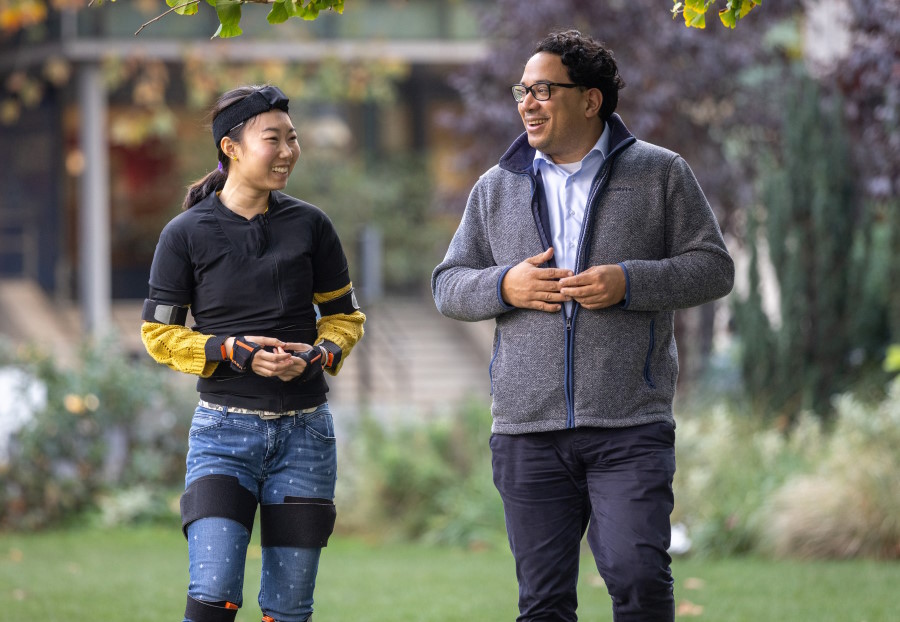Movie motion capture tech tested for disease tracking

Motion capture technology used to bring fantasy characters to life in movies like Avatar and The Lord of the Rings is being used alongside artificial intelligence (AI) to track diseases that lead to disorders of movement.
The work on the wearable tech is described in two papers published in the journal Nature Medicine, focusing on Duchenne muscular dystrophy (DMD) and Friedreich's ataxia (FA) - two rare, degenerative disorders that both lead to disrupted movement patterns, disability, and paralysis.
The hope is that the motion capture suits will allow patients with these disorders to be assessed and diagnosed as early as possible, providing an opportunity to start support and treatment early.
The technology could also be invaluable in measuring the effect of therapeutics that aim to treat disease characterised by disordered movement, potentially helping to speed up the search for new treatments by requiring fewer patients in studies. Other potential applications lie in dementia, stroke, and orthopaedic conditions.
Both studies combined the sensor suits with an AI used to interpret the motion capture data, creating movement "fingerprints" for each subject, including "movement patterns [that] had not been described clinically before in either DMD or FA," according to the researchers.
 In the DMD study, 21 children with the disorder were compared to 17 healthy controls, wearing the suits whilst carrying out standard clinical assessments, like the 6-minute walk test, as well as going about their everyday activities.
In the DMD study, 21 children with the disorder were compared to 17 healthy controls, wearing the suits whilst carrying out standard clinical assessments, like the 6-minute walk test, as well as going about their everyday activities.
Similarly, use of the tech in a second study involving nine adults with FA – the most common form of inherited ataxia – allowed patients to be characterised according to their level of impairment. It was also able to predict the level of disruption in the FA gene associated with the disease – which predicts how quickly their symptoms will progress - without the need to take biological samples.
According to lead investigator, Professor Aldo Faisal (pictured above right) of Imperial College London, the tech gathers more data about a person's full-body movement then any neurologist would be able to gather using conventional testing.
"Our AI technology builds a digital twin of the patient and allows us to make unprecedented, precise predictions of how an individual patient's disease will progress," he said.
"We believe that the same AI technology working in two very different diseases shows how promising it is to be applied to many diseases and help us to develop treatments for many more diseases even faster, cheaper, and more precisely."
Images via Imperial College London













